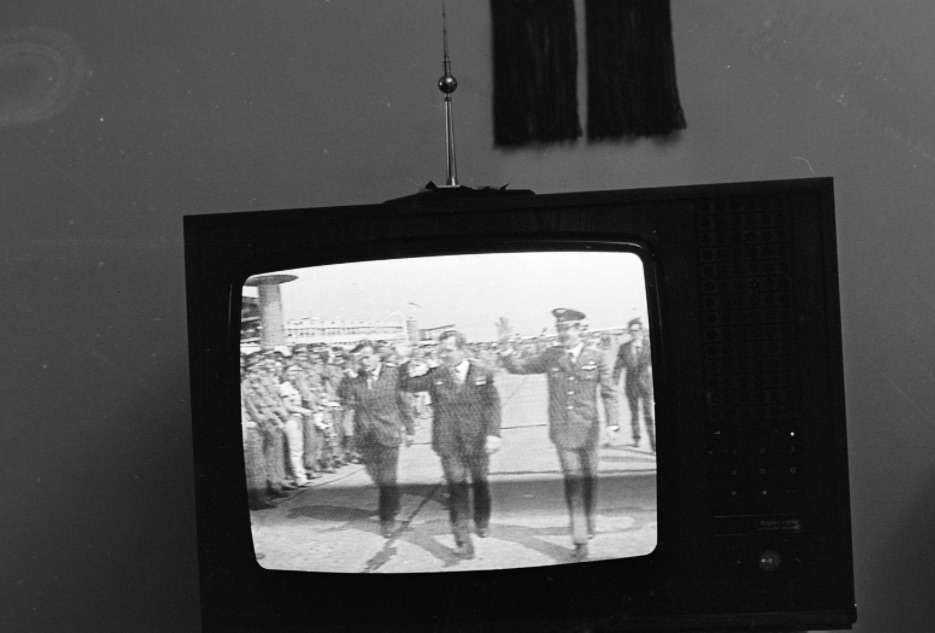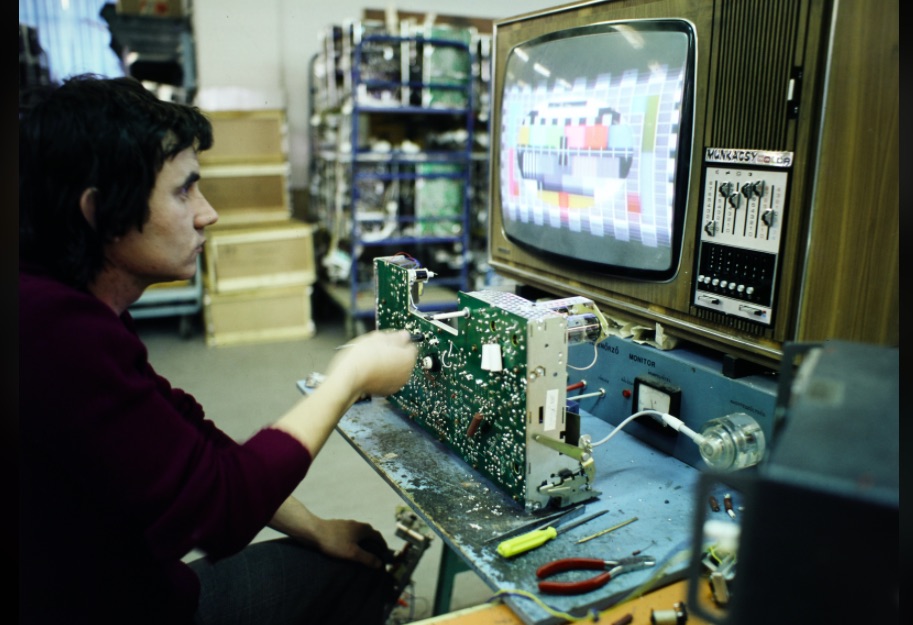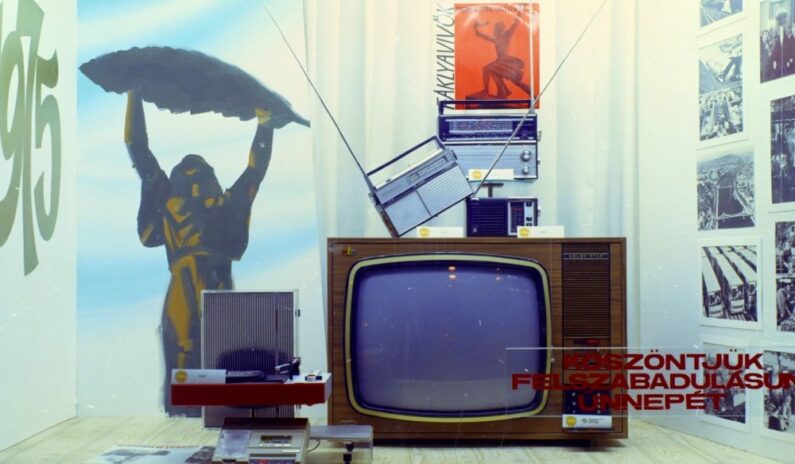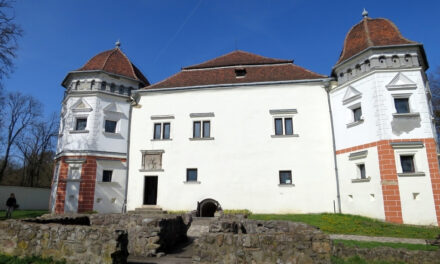The historian Zsuzsanna Borvendég's series was originally published on the PestiSrácok website, but there are certainly those who missed it. But those who haven't read all the parts should also read it again. Knowing the whole picture, can we understand how we got here?
The corruption abuse committed using the Lenin Metallurgical Works caused significant financial damage, but let's not think that this was an isolated case at the time. Almost simultaneously, a similarly scandalous business was organized, the background of which could be more serious connections and the consequences of which are far-reaching. The (current) protagonist of the series: Videoton.
From the end of the sixties, Videoton played an increasingly important role in the procurement of embargoed technologies. In 1969, the countries of the KGST began joint computer technology development under Soviet control, during which the goal was to develop a mutually compatible computer family. Hungary was represented by Videoton in the project, but the company's engineers stipulated that they were only willing to use Western technology in their work. In order to simplify procurement, the Székesfehérvár factory was granted foreign trade rights, and Videoton Ipari Külkereskedelmi Rt., Vidipex, was established.
The Waltham subsidiary
In part, the parent company was in contact with major global computer technology companies, and in part it used subsidiaries and businessmen to evade the COCOM list. The smuggling of embargoed technologies and the competition with the American authorities are perhaps the most exciting chapters of today's secret service games , from which small stories can now be reconstructed and in this series you will also be able to read episodes on the subject. We don't necessarily have to think about James Bond tricks and thrills, but rather covert purchases, front companies and contracts of agents disguised as businessmen - or even occasional assignments from real civilians - provided the framework for procurement.
The best-known front company owned by Videoton was Waltham, which owes its "reputation" to fraud and embezzlement associated with the company. (Later on the soccer team, but I'll ignore that right now due to my complete ignorance.)

Classic product. VIDEOTON Super Color television set. Astronauts Béla Magyari, Valerij Kubasov and Bertalan Farkas can be seen on the screen (photo: Fortepan.hu)
And Horn's later minister of information appears
Waltham was a West German company with which Videoton first concluded a cooperation contract and then bought it, because in the early eighties it was already referred to as the representative office of the Hungarian company.
about the events of the time Szabolcs Fazakas , the later minister of the Horn government, who gave reports to state security under the pseudonym "Stefán" in the 1970s. On June 10, 1970, Videoton entered into a general supply agreement for the sale of televisions with the East German company Waltham Electronic. Based on the original contract, Videoton paid a 5% sales commission to Waltham, but the conclusion of the agreement was not even legal. On the part of Videoton, there was no corporate signature on the documents, but György Berkes represented the Hungarian side in one person when accepting the agreement, but he did not receive written authorization to do so.

Szabolcs Fazakas and György Szilvássy in the background (photo: MTI)
Videoton delivered on credit, but also paid a commission...
During the subsequent investigation , Videoton's director at the time, Sándor Léderer He claimed that he "may have given verbal authorization" to close the deal - which, let's face it, isn't a very convincing explanation and probably isn't legal either. They did not notify the commission provision of the contract to the Magyar Nemzeti Bank (MNB), which acts as the foreign exchange authority, even though they were obliged to do so according to the relevant legislation.
That is why for years it did not catch the eye of any supervisory body that Videoton pays a commission for traffic to a company to which it supplies on credit anyway. They understood it well: Videoton delivered televisions on credit, i.e. free of charge, to Waltham, which sold the devices, and even received money from the Hungarian company after the turnover (not the profit or the income). And there was turnover: Waltham was able to sell the TVs at a good price, mainly on Chinese markets, but it never paid off its debt to the manufacturer from the amount received, that is, it did not pay for the televisions. The West German company's profits were guaranteed.
During 1974-1975, the Directorate General of Revenue of the Ministry of Finance conducted a financial audit of Videoton, during which the authority noticed financial abuses between Videoton and Waltham. Apart from a few general observations, the investigation did not have any serious consequences , until in 1978 the Ministry of Foreign Trade began to deal with the matter. After such antecedents, it is perhaps not so surprising that the consequences were not forthcoming this time, however, a report was produced , from which we can learn about the first few years of the financial turnover between the two companies and its eloquent results.
The Munich company is very well-earned
Videoton's accounting did not show any significant arrears. Waltham's debts were not reported from 1973, even though by 1978 this amount had reached astronomical heights: at the time of the investigation, the outstanding debt of the subsidiary was HUF 98.6 million, of which the expired debt was HUF 94 million. (For comparison: the average annual salary was HUF 36,000 in 1978!) Waltham continuously received credit from Videoton for the goods intended for transit, and unusually the commission was also paid in advance. The investigation established that, in addition, significant discounts were provided to the Munich intermediary, who in turn often sold the equipment to the Far East at a significant premium.
Despite all these facts, Waltham was on the brink of bankruptcy and notified Videoton of its insolvency, so the parent company managed to get the MNB to provide a HUF 5.4 million loan to the company, which was allegedly struggling with financial difficulties, for which the MNB undertook to guarantee it. Meanwhile, the company's debt to Videoton had already reached HUF 110 million, but the due commission - HUF 10.2 million - was paid by the Székesfehérvár factory, instead of reporting the amount as part of the debts.

VIDEOTON, Munkácsy Color television set (photo: Fortepan.hu)
Hargitai, who does not speak German, is sent out
In the fall of 1978, however, experts from the Ministry of Foreign Trade finally arrived at Videoton to investigate the irregularities. The names of those responsible have been established: György Berkes , András Gede and Károly Győri . However, no prosecution followed the report, according to Fazakas, the case had only one conclusion: "Videoton wants to send a person named Hargitai [to Waltham], saying that only in his person is the recovery of the above amount ensured." Hargitai returned home from Moscow from a long-term assignment 1 year ago; he does not speak German; he doesn't understand entertainment electronics, so [the ministry] doesn't see it as expedient to send him out, which will nevertheless happen in the near future."
Let's summarize what has happened so far: Waltham received various electronic devices from Videoton on consignment and at a significant discount - mainly televisions - which it exported to the Far East at a considerable markup, but it did not pay Videoton for the purchased products, not even afterwards. However, the usual commercial commission was paid on products supplied by Videoton to Waltham, not on goods sold by Waltham, meaning that Waltham received money from Videoton in addition to the free televisions. And the damage was often borne by the Hungarian national economy, that is, using today's terminology: the Hungarian taxpayers.
Mediation between the West and Moscow
But where did Waltham's money go? As I already mentioned at the beginning of the article, Videoton was one of the largest embargoed suppliers in the Eastern bloc, Waltham also dealt with technology transfer, so they apparently bought banned products with part of the embezzled money. Videoton's important role in the procurement of embargoed products is shown by how the Moscow headquarters of its foreign trade company, Vidipex, founded in 1972, has grown into a prestigious company. They originally started with five employees, and this number soon swelled to 300 people.
They were soon accommodated in a self-built three-story building, where many Soviet citizens participated in the installation of the delivered products. Videoton's warehouse in Moscow was also used by several Hungarian foreign trade companies to carry out their "special" tasks, which means the delivery of military products. Among the Soviet citizens working here, there must have been many secret service officers , since the use and installation of the delivered sensitive technologies took place during strictly confidential developments in military plants. Their existence, level of development, and technology could not be made public, so the Hungarian specialists who served here also enjoyed special trust.
It could not be otherwise with the Hargitai that Fazakas mentioned in his report. But who exactly is it and what was the future fate of Waltham?
Source: PestiSrácok
Author: historian Zsuzsanna Borvendég
(Cover photo: Videoton Color Star. Photo: Fortepan.hu)













